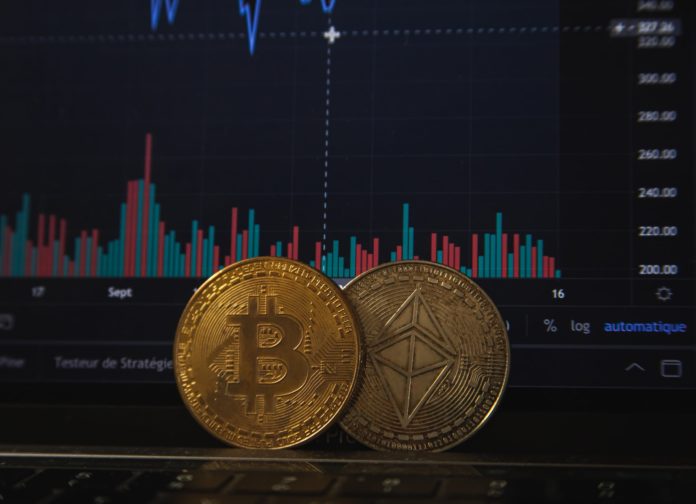Crypto has taken the world over the last decade, as blockchain technology keeps showing what it’s capable of. An increasing number of people have started flocking to space since 2016 when the first investment boom occurred. Today, we’re witnessing new projects launching every month, some of which are quite promising.
All this is happening as blockchain networks and functionalities are added by passionate developers. One notable feature that has grown the popularity of blockchain is smart contracts. In this article, we’ll answer the question of what is a smart contract, and we’ll also mention how they work. We’ll also mention its history and why it’s so important for crypto.
What Are Smart Contracts on Blockchain?
Smart contracts are computer programs that are stored and executed on the blockchain. Smart contract executes transactions between parties in an automated fashion without needing third-party verification. For example:
- If you want to buy something from Amazon, you send your payment through a smart contract which then sends it to the seller’s smart contract after it confirms that your payment has been made successfully.
- If you want to rent out your home for a week on Airbnb, you can set up a smart contract where Airbnb automatically pays you when someone books and confirms their stay with them at least 24 hours before check-in time (the same way we pay hotels).
- A smart contract in the decentralized finance platforms handles all types of automated transactions. Whether it’s transfer, borrowing or lending, all these processes are handled automatically.
In the cases above, we see how automation can be achieved by using smart contracts because there is no need for human intervention or oversight once they have been set up correctly and deployed onto the blockchain network (which again means they can be trusted).
The first platform that brought popularity to the notion of digital contracts was Ethereum. Ethereum smart contracts were created on the platform. People started realizing the potential of smart contracts as developers started working on developing decentralized networks. The DeFi ecosystem we now see is powered by smart contract technology.
Now that we have an idea of what is a smart contract let’s explore how smart contracts work.
How Do Smart Contracts Work?
Developers use smart contract code to create unique and extremely detailed smart contracts. The process is challenging because replacing an intermediary requires a lot of thinking about all the possible scenarios between two parties. That’s why vetting smart contract security is essential. But we’ll get into that a bit later.
Once developers create smart contracts, they are now on blockchain and ready to perform their functions when requested. Smart contract execution happens when one of the platform users initiates a particular transaction. The smart contract checks whether all the conditions for the transaction are met. The executed contract then performs the action it was designed to do.
While Ethereum is the most popular smart contract writing platform and was the first to implement these functions, other cryptocurrencies also have their version of them as well. The most notable mentions go to Cardano and Polkadot networks, among others.
Smart contracts are essentially programs that run on the blockchain. They are self-executing, meaning once the terms are met, they execute themselves seamlessly without any human intervention. This makes them especially helpful for automating tasks like verifying the identity or paying rent. It could save users time and money while ensuring fairness and transparency between parties involved in an agreement.
Digital contracts also benefit from being stored on a secure public distributed ledger that’s immutable and transparent. That prevents tampering with transaction history, which means no one can tamper with any information stored within a smart contract either.
What are Smart Contract Programming Languages?
To create a smart contract, you need to choose a programming language. There are many different languages that can be used to build smart contracts, including:
- Solidity (Ethereum)
- Hyperledger Composer (Hyperledger)
- Ripple XRP Ledger Interledger Protocol (Ripple)
- Waves Platform Custom Application Programming Interface (Waves)
- EOSIO (EOS)
- Cardano ADA Plutus Core Libraries for the Cardano Blockchain Platform (Cardano)
- NEM Mosaic Language for Writing Smart Contracts on the NEM Blockchain Network(NEM)
Many other smart contracts rely on their coding languages for development. These are only some of the most popular ones.
Why are Smart Contracts Important?
Smart contracts are an important new technology for the blockchain because they can do things that traditional contracts cannot. They are faster, more secure and cheaper than traditional paper contracts. They are also more transparent, which means all parties in the contract can see exactly what is happening at all times.
They can be used to replace paper contracts for many types of transactions, including financial exchanges and voting processes on the blockchain. Smart Contracts have even been proposed as a way to track property ownership on the blockchain because they allow people to transfer ownership without having to go through an expensive middleman like a lawyer or real estate agent.
Benefits of Smart Contracts
A smart contract’s rules can be set up to execute automatically when certain criteria are met. For instance, if the oil price hits $50 per barrel at any point over the next year, then payment will be sent automatically to an address owned by your friend or family member within 10 minutes of this event occurring.
This saves time on both sides and reduces costs because there is no need for lawyers or bankers involved in processing payments between two parties who trust each other but aren’t able to trust anyone else due to a lack of trust in banks’ security measures.
Autonomy
Smart contracts are autonomous, decentralized and operate independently without needing middlemen or third parties to verify transactions. That is their biggest advantage. For example, if you want to buy something online from Amazon but don’t want anyone else to know about it, you can use a smart contract which will automatically send out the item from the warehouse when payment has been made by your cryptocurrency account directly into theirs.
Similarly, with real estate deals. You sign up with a company like Propy, which will set up your property address on their blockchain platform. People can purchase parts of your house using cryptocurrencies such as Bitcoin or Ethereum directly into their accounts without ever meeting each other face-to-face. Thanks to a simple, smart contract, they don’t have to rely on banks or lawyers who might charge high fees which would otherwise come out of their profits, making overall transaction costs lower.
Speed and Efficiency
The speed and efficiency of smart contracts are other major advantages. The same functions that are normally performed by lawyers and accountants can be done by a computer program. This reduces the amount of time it takes for contracts to be written, reviewed, negotiated, and signed.
Smart contracts also improve on traditional contract law because they’re more secure and reliable. A traditional contract requires trust between all parties involved in executing the transaction. However, with smart contracts, you don’t need to trust people or companies. All parties abide by pre-determined smart contract’s terms and conditions within the code itself.
Smart contracts are cost-effective because they eliminate third-party costs associated with traditional paper-based legal agreements like attorneys’ fees or banks’ transaction fees which often add up over time due to their complexity level above normal transactions such as buying groceries at the grocery store or buying clothes at Walmart.”
Backed by Blockchain Technology
Smart contracts can be used to create decentralized applications (dApps), which are applications that run on a P2P network of computers rather than being controlled by a single entity.
You might be wondering what blockchain technology has to do with smart contracts. Blockchain is the underlying technology that enables smart contracts. Blockchain is a distributed ledger, so it’s secure and decentralized. It’s also transparent and immutable, so your data remains accurate even after it’s been recorded into the blockchain.
Therefore, multiple parties involved in the transaction can rest assured that everything is fair, secure and efficient.
Saving Money
Smart contracts also bring with them many advantages that can save you money.
- Smart contracts are far cheaper than traditional contracts. The days of paying $500 per page for your lawyer to write up a contract are over. With smart contracts, there is no need for lawyers or other middlemen. The terms are written into the code and cannot be altered by anyone except for you and parties certain conditions are met (like a public key being provided). Further, because smart contracts run on the blockchain network in a decentralized fashion, there is very little chance of fraud taking place on a large scale. It’s the reason why we see many smart contract applications today.
- Smart contracts can be used to save money on legal fees. One major cost associated with regular business dealings today is legal fees, as everything needs to be legally binding in some way or another. With smart contracts implemented into your daily business practices, your company will no longer need an attorney around every corner when negotiating deals with vendors or employees who want more money due them under contract terms agreed upon at the outset of the employment agreement signing process.
- Insurance costs can be much lower as smart contracts can regulate any insurance payment. One smart contract can replace an agent who needs to assess whether an insurance claim is legit. After providing all the details to the smart contract, it can execute the claim, lowering overall costs for both the insurance company and the client.
Smart Contract Applications in Different Industries
There are plenty of smart contract use cases in a variety of industries. These include finance, gaming, insurance, right management, identity, real estate, healthcare and supply chain. Smart contracts are also used in banking and government sectors along with legal and education industries. Smart contracts will find applications in the art industry as well as energy and agriculture sectors.
Rights Management (Tokens)
The first is the tokenization of assets. Tokenization is a process by which an asset is broken down into multiple smaller units, and each of these units can be traded independently on a blockchain platform.
This allows investors to buy or sell fractions of real estate, art, intellectual property and other types that would normally be too difficult or expensive to trade with traditional investment vehicles such as stocks or bonds.
The second use case is tokenizing commodities like gold and diamonds to provide increased liquidity for these traditionally illiquid markets. In addition to providing greater liquidity for these assets, it also provides another layer of security by ensuring that no one individual has full control over the supply chain for these commodities.
Smart contracts help with ownership transfers, making it easier to trade a digital asset according to a previously written agreement. The best part is that you don’t need any central authority in the whole process, which usually just adds costs. Such capabilities make the technology so popular.
Finance (DeFi)
Smart contracts can be used in the financial sector to create decentralized exchanges, lending platforms and insurance platforms. These types of platforms are referred to as DeFi. The term DeFi stands for Distributed Finance, and they stay automated thanks to many contracts that are present on their systems. The following is a list of some projects that have been created on top of the Ethereum network:
- 0x Protocol: A protocol for exchange tokens built on top of the Ethereum protocol; it allows off-chain communication between trading pairs so that multiple orders can be filled in one transaction on-chain.
- Compound Finance: A protocol for issuing digital assets which offer compound interest rates to investors who hold their tokens long enough before they mature into cash or other assets.
- MakerDAO: A stablecoin project that uses collateralized debt positions (CDPs) and price feeds from various sources such as Digix Gold, and Augur REP token price feeds to provide a stablecoin solution in an ecosystem where users can peg their own currency against Ether (ETH).
Gaming and NFTs
One of the most exciting ways to use NFTs is in gaming, as they can be used to unlock items and characters. A game like CryptoKitties has made NFTs into collectables, while other games have taken advantage of the fact that they’re digital assets with no physical form.
For example, CryptoCelebrities allows users to purchase celebrity tokens which allow them to participate in auctions for “authentic” celebrity photos or videos.
Another major application of NFTs is their use as tickets at events such as concerts or sporting events. The ability to transfer ownership means that you can sell your ticket or give it away without having to worry about losing it permanently once the event has taken place.
Insurance
Smart contracts can be used to automate the process of insurance claims. They can also be used to automate the process of insurance premiums and fraud detection. Additionally, smart contracts are already being used in verification procedures for identity theft prevention and anti-money laundering compliance.
What is the Most Popular Smart Contract Platform?
Ethereum is the most popular smart contract platform. EOS is also a popular one, but it’s relatively new and hasn’t had time to build up quite as large a community of developers or users.
Hyperledger is written in GoLang instead of Solidity (the language used by Ethereum) and therefore has some different properties from Ethereum. Ripple isn’t really a blockchain since it doesn’t use proof-of-work consensus but some people think it should be classified as one anyway.
Quorum is another interesting project that uses JAVA for its smart contracts rather than Solidity/GoLang like most other platforms do; this makes them easier to write but harder to run efficiently on devices with low amounts of RAM (ie phones).
Cardano is on the rise as its network keeps steadily growing.
Smart Contract History: Who Invented the Concept?
The concept of smart contracts was first introduced by Nick Szabo in 1994. His vending machine showed how people could purchase products without needing a seller. However, it wasn’t until Vitalik Buterin published his white paper on Ethereum in 2013 that the term “smart contract” became mainstream. Other notable contributors to the field include:
- David A. Johnston, who coined the phrase “smart contract” in 1995 and later founded BitAngels, an investment group for blockchain startups;
- Thomas W. Gill and Eran Hammer, who helped establish a framework for using payments via smart contracts;
What are Smart Contract Limitations?
There are several limitations to smart contracts that you should be aware of.
- Smart contracts are not always secure. If a hacker is able to break into a blockchain, they may be able to steal the funds stored in your smart contract account or change its code. It’s the reason why vetting smart contract security is crucial for the DeFi ecosystem.
- Smart contracts still rely on humans for enforcement. A smart contract can only do what it was programmed to do—if there’s an error in the code or if something goes wrong with the execution of a transaction, there’s nothing else that can be done but wait for someone else to fix it manually.*
What is the Future of Smart Contracts?
As the use cases for smart contracts grow, so will their adoption. There are also a number of other developments that could further push forward the capabilities of smart contracts. Some examples include:
- More support from other blockchains (e.g., Bitcoin and Ethereum)
- More support from other industries (e.g., healthcare, supply chain management)
- Support for more programming languages (e.g., Python, Javascript)
- Support for more smart contract platforms
Conclusion
The future of smart contracts is bright and full of potential. We have already seen some exciting examples of what this technology can do, but there is still much work to be done. The next step would be for developers to explore ways for smart contracts to interact with each other. Integration with other systems, such as supply chain management solutions or regulatory compliance systems like Know Your Customer (KYC) would also be helpful.
If we can find the right balance between automation and human oversight in these types of applications, then they could enable us all to live more transparently while maintaining control over our privacy





